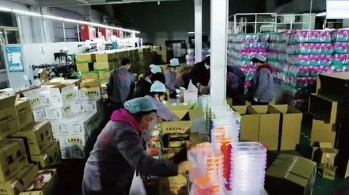Our past half year, as you can imagine, has been dominated by covid. Beyond the short-term emergency response, we have to brace ourselves for the longer-term impact. It could be an opportunity for philanthropists to demonstrate the important role they can play in society, particularly in a crisis. Or it could be a slide towards irrelevance, as big government takes over.
Nobody can be sure what how the covid situation will evolve and end. But we can still work from a reasonable base case. Here is mine.
We can be sure that we are in it for quite some time more. I don’t think we will see anything close to resuming pre-covid ways of doing things until 2022, at the earliest. For myself, I don’t expect to start travelling until sometime in the middle of 2021.
A successful vaccine will not be discovered until early 2021, if one of those undergoing Phase III trials now is successful. If these fail, it would be at least another six months’ wait. Mass vaccination would be slow to roll out. Take up will be slow, and the production will take time. Many would refuse vaccines, at least till safety can be validated. Vaccine efficacy would at best be 75%.
In the meantime, economies will be devastated, even if there are companies (mainly large ones) that will emerge as big winners, like those in tech, supermarket chains, etc. However, many MSMEs (micro, small and medium enterprises) will go bankrupt, and in most countries, they provide majority of the the jobs. Jobless rates will be in the double digits percentages everywhere.
The hardest hit would be the low income and vulnerable groups – migrant workers, refugees, itinerant and informal workers, etc. They were already living hand to mouth, pre-covid; now their hands grasp mostly at nothing. Inequality will increase. Layering onto these, there are those mentally ill, those with disabilities and seniors who are isolated .
Many middle income earners would also suffer greatly. Job losses are ripping through the leisure, F&B, and tourism sectors, and the accompanying sharp fall in consumer spending are also causing massive layoffs in manufacturing, retail and other non essential services.
What then can we do? First, we need to change the way we serve, permanently, and even grow our effectiveness amidst all the limitations. At APC, for example, we would probably never go back to the past of hopping on a plane every other week. Online dialogues, although limited in some ways, allows us to connect so much more efficiently to many in different locations. While we will still need to travel – the face to face and physical site visits cannot be entirely replaced – hybrid offline-online meetings is likely to be a fixed feature in our future.
Secondly, we need to look for the needs on the ground needing more attention. We need to coordinate our ground efforts as previous landscape mapping would mostly be outdated, and dynamically changing. Let us use our collective intelligence to find where the needs are, and work with community-based organisations who exhibit a growth mindset and are responding in nimble and targeted ways. Collaboration is key because there is too much that is unknown.
Thirdly, let’s look long term, anticipate and remodel. In any crisis, there is always a lot of funding in the immediate relief and insufficient for long term redevelopment. This is a perfect time for philanthropists and foundations to experiment because more than ever, governments do not have all the answers. In fact, they are likely to fumble often because they are designing new programmes on the fly, while often not have enough of a pulse on the ground.
At the Lien Foundation, which I chair, we are encouraging our grantees to take this opportunity to do a make over. We are providing funds for them to seed new programmes and test bed solutions to meet emerging and longer term needs, redesigning their services and embedding digital in their programmes and operations. We are also funding them to embark on organisational transformation.
At APC, many of our projects also have had massive adaptations. In this issue, you can read about how INSPIRASI and Pemimpin have pivoted their school leadership programmes.
I would there like to urge all to take on the spirit of generation and creation. A crisis is the best time for change, as we can leverage on the sense of urgency, and the openness to new ways. I would also like all to be prepared to take on more of a leadership role and to be an example not just in what we say, but also what we do.
We are now having to sprint and run a marathon at the same time. This is inevitable. So let us all work together to make the distances shorter.


